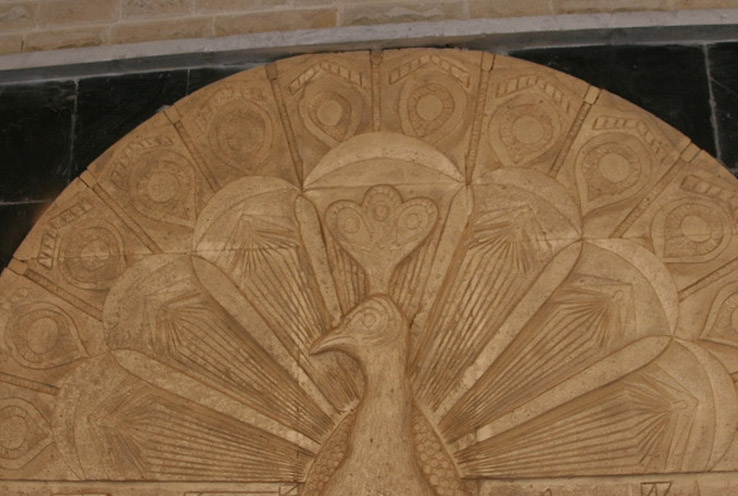

 The Peacock Angel is a divine figure in Yezidi theology. Photo by KURDISTAN🌟كوردستان , via Flickr (CC BY 2.0)
The Peacock Angel is a divine figure in Yezidi theology. Photo by KURDISTAN🌟كوردستان , via Flickr (CC BY 2.0)
Continuing our blog series on the Fourth World Journal Special Issue: Nations International Criminal Tribunal (NICT), we’re pleased to spotlight another powerful contribution centered on the Tribunal. In “Ezidikhan Customary Laws: A Blueprint for Indigenous Justice,” Patrick Harrigan—longtime policy advisor and secretary to the Yezidi nation of Ezidikhan—offers a deeply informed and personal perspective on the foundations of the Charter.
Harrigan draws on direct experience with the Yezidi people to illuminate how their long-standing tradition of reparative justice anchors the moral and philosophical vision of the Tribunal. Harrigan critiques the limitations of institutions like the International Criminal Court and presents the NICT as a culturally grounded and globally relevant alternative—one that embraces community-based justice, cross-cultural solidarity, and Indigenous sovereignty. Through compelling case studies and thoughtful reflection, this article positions the NICT as a Tribunal and a transformative blueprint for a more just and accountable international order.
By Patrick Harrigan, M.A.
This article explores the philosophical and historical underpinnings of the NICT as well as its potential to reshape the international legal system. The Yezidi tradition of reparative justice composes the core philosophy by which the NICT addresses humanitarian crimes and safeguards Indigenous sovereignty. Improving on existing institutions like the International Criminal Court (ICC) and the Permanent Court of Arbitration (PCA), the NICT prioritizes culturally specific and community-based solutions. Case studies, including Barbados, Germany, and Armenia, illustrate the court’s ability to promote solidarity and foster knowledge exchange among ally nations. The NICT encourages a more expansive understanding of human rights violations, including genocide, ecocide, culturcide, and gender-based violence—thus accounting for transgressions previously overlooked and ignored among the international community. Serving as a blueprint for nations enduring ongoing oppression, the NICT provides a vision of a value-driven global order based on dignity, accountability, and collective justice.

Patrick Harrigan has served the Yezidi nation of Ezidikhan since 2014 as a policy advisor and secretary to Justice Minister Nallein Sowilo. He earned a master’s degree in Asian Studies at the University of Michigan and is trained in comparative religion and Indology.
The library is dedicated to the memory of Secwepemc Chief George Manuel (1921-1989), to the nations of the Fourth World and to the elders and generations to come.
access here